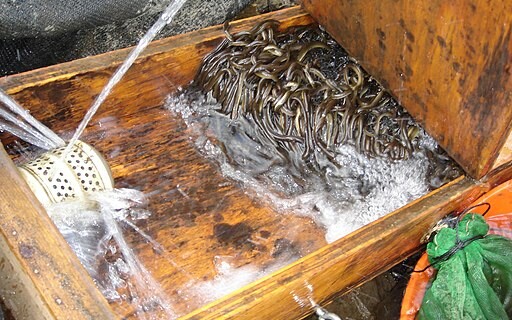As the 2024 elver season begins in Maine, Maliseet harvesters in New Brunswick plan to add their catches to the supply. “We’re planning on importing 10,000 pounds to sell to buyers in Maine,” says Henry Bear, a Maliseet leader based in Maine.
According to Bear, the 1760 Treaty with Great Britain and the 1776 Treaty with the U.S. recognize the rights of the Maliseet people to fish in their unceded aboriginal territory, and the Canadian Supreme Court has recognized the rights of cross-border tribal members living in the U.S. to fish and hunt in Canada.
“That’s been established,” said Bear, who holds a Master of Law degree. “I've been appointed by elected Maliseet Tribal leaders in Canada to coordinate the shipment and sale of 10,000 pounds of elvers, and we’re starting the importation process with the U.S. Fish and Wildlife Service, invoking Lacey Act indigenous exemption and our 1776 Treaty-based Trade Agreement with the U.S., which will allow the imports of tribally harvested elvers into the U.S. at Machias as expressly stipulated in that agreement.”
Bear is sure of the rights of Maliseet, Passamaquoddy, and Mi’kmaw elver harvesters. “These elvers are lawfully harvested within aboriginal title-owned lands on the so-called Canadian side of our homeland and lawfully exported from that homeland and imported into the so-called U.S. portion of our same homeland for sale at Machias and other trading points in accordance with our 19 July 1776 treaty-based trade agreement, the 1794 Jay Treaty, the U.S. federal Lacey Act" statute and Articles 3 and 10 of both the U.S. and Maine State Constitutions, respectively.”
While Bear and the other Maliseet, Passamaquoddy, and Mi’kmaw elver harvesters are confident that their treaties‑‑as recognized in the Canadian Supreme Court’s 1999 Marshall decision and the court’s 2021Desautel decision—acknowledge their unceded rights to harvest elvers in their traditional territory in Canada, at the provincial level they are facing arrest.
Several Maliseet elver harvesters in New Brunswick and Mi’kmaw harvesters in Nova Scotia were arrested last year and this year but have not yet gone to trial. Five Mi’kmaq harvesters had their vehicles and elvers confiscated in March 2024 but were released without charges. The DFO has since closed the season.
“I don’t think they want these to go to trial,” says Bear “As they can reasonably predict it will go against them. I see these arrests as a blocking maneuver to get us to negotiate a settlement. But if we’re going to have a settlement where we can harvest peacefully alongside non-native harvesters, it must be in accordance with the Treaties, in the spirit and intent of the treaties and trade agreements. There’s plenty for all and we’re willing to share, but they can’t arrest Indians just to buy more time.”







